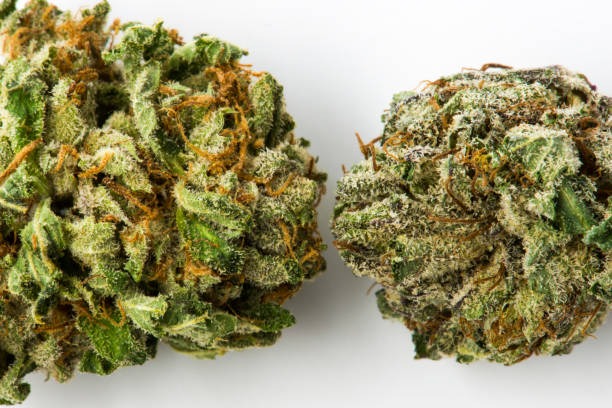When it comes to managing stress, people are increasingly curious about how smoking THCA flower compares to CBD products. While both are non-psychoactive in their raw forms, they behave very differently once heated. Smoking THCA flower can produce mild psychoactive effects that may help with relaxation, while CBD remains non-psychoactive and is often chosen for its gentle, calming impact without a high.
Those looking to relieve stress may question whether THCa flower or traditional CBD flower suits them better. Several factors influence this decision, including how each interacts with the body, personal tolerance levels, and the specific effects desired. Many users appreciate exploring a selection of THCa flower on sale to identify what works best for their routine. Ultimately, experimenting carefully with both can help individuals discover which cannabinoid provides the most effective and comfortable relief. Consulting with knowledgeable retailers or healthcare professionals can also guide a more informed choice.
Understanding the differences in action and effect between these two types of flowers is key. With more options available than ever, comparing their mechanisms and practical considerations can help make an informed decision about which is best for stress relief.
Key Takeaways
- THCA may provide mild psychoactive relaxation, while CBD provides non-psychoactive calm.
- Effects and safety can differ depending on how the flower is used.
- Quality and individual goals matter when selecting between THCA and CBD flower.
THCA Flower vs. CBD: Mechanisms and Efficacy for Stress Relief
THCA and CBD are two cannabinoids in cannabis with distinct effects and mechanisms for stress relief. While both can promote relaxation without intoxication, they interact with the endocannabinoid system in different ways and provide varied strengths for anxiety reduction and therapeutic uses.
Understanding Cannabinoids: THCA and CBD
THCA (tetrahydrocannabinolic acid) is a non-psychoactive cannabinoid found in raw cannabis. When heated, THCA converts to THC through decarboxylation, becoming psychoactive. However, when smoked or vaporized, not all THCA converts, so users may still consume both THCA and THC.
CBD (cannabidiol), another non-psychoactive cannabinoid, does not produce a high or intoxicating effect. While both THCA and CBD are present in cannabis, their chemical structures and physiological impacts are different. CBD is widely recognized for its calming and anti-anxiety benefits. The absence of significant psychoactivity in both compounds allows people to use them for stress management while maintaining mental clarity.
How THCA Flower Works in the Endocannabinoid System
THCA interacts with the body’s endocannabinoid system differently from THC or CBD. Unlike THC, THCA does not bind directly to CB1 receptors in the brain. Instead, it influences other molecular pathways, including the release of proteins and enzymes that help regulate mood and inflammation.
Current research suggests that THCA may have potential anti-inflammatory, neuroprotective, and anti-nausea effects, possibly contributing to relaxation and reduced stress in some users. As a result, individuals interested in non-psychoactive cannabinoid benefits may consider THCA flower, but it is important to note that evidence for direct anxiety relief is still developing.
CBD Mechanisms for Stress and Anxiety Reduction
CBD interacts indirectly with both CB1 and CB2 receptors within the endocannabinoid system, supporting natural balance and calming overactivity in stress circuits. Studies and user experiences highlight CBD’s ability to reduce anxiety without causing intoxication or dependency.
Unlike THCA, CBD’s action modulates serotonin receptors (5-HT1A), which may explain its strong effects on mood and relaxation. As a result, CBD flower is widely used for stress and anxiety reduction, giving users flexible options for daytime or evening relief. CBD’s non-psychoactive nature, coupled with its broad therapeutic uses, makes it popular among those seeking natural anxiety relief from cannabis products.
Practical Considerations: Usage, Safety, and Quality
People using THCA flower or CBD for stress relief need to consider how these products are consumed, the potential safety issues, and product quality standards. These factors help determine individual outcomes, daily function, and overall wellness.
Dosing, Administration Methods, and Bioavailability
THCA flower and CBD can be smoked, vaporized, or used in other inhalation devices for rapid onset. Smoking usually delivers cannabinoids faster than oral routes, but dosing can be inconsistent.
With both THCA and CBD, starting with a low dose and slowly increasing is recommended. While CBD is often used in the 10–40 mg range daily, THCA dosing depends on concentration and product type. Bioavailability—the proportion of a substance that enters the circulation—varies by method. Inhalation is more efficient than oral use. Cannabinoid profile and terpenes also influence effect and flavour.
Potential Side Effects, Adverse Reactions, and Contraindications
Most users find both THCA flower and CBD to be well tolerated. However, mild side effects can occur, such as dry mouth, fatigue, or mild dizziness. In rare cases, adverse reactions may include changes in mood, gastrointestinal disturbances, or mild allergic responses. CBD may interact with medications metabolized by the liver. THCA, though non-psychoactive until heated, can convert to THC when smoked and may cause psychoactive effects in sensitive individuals or high doses.
Medical cannabis and related products are not recommended during pregnancy or breastfeeding. People with underlying health conditions or those taking other prescriptions should consult a healthcare professional before use.
Conclusion
Both THCA flower and CBD flower are non-psychoactive in their raw forms, but they interact with the body in different ways. When it comes to stress relief, CBD is better supported by current research for its potential calming and anti-anxiety effects, as noted in recent studies and clinical observations.
Individual preferences, tolerance, and goals should guide the choice between these hemp products. Those seeking clear and reliable stress relief may prefer CBD flower, while others may explore THCA for its emerging potential and unique properties.
This article is for informational purposes only and does not constitute medical advice. THCA and CBD products may affect individuals differently. Always consult with a healthcare professional before starting any new supplement or cannabis-related product, especially if you have pre-existing medical conditions or are taking medications. Use all cannabinoid products responsibly and follow local laws and regulations.

